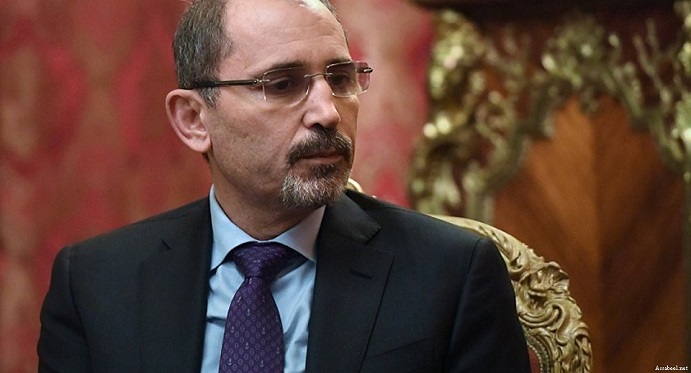Middle East Monitor / May 28, 2020
The Foreign Minister of Jordan has warned that Israel’s annexation of large parts of the occupied West Bank will be a breach of international law, undermine regional peace and will institutionalise apartheid, the Jordan News Agency has reported.
Ayman Al-Safadi urged UN Middle East envoy Nickolay Mladenov to act to “prevent the illegal annexation of Palestinian lands” and stressed the need to “create a new horizon for the resolution of the [Israeli-Palestinian] conflict based on the two-state solution.”
Al-Safadi added that, “The decision will kill the two-state solution and fuel the conflict and make the one-state option the inevitable result, about which the world cannot stay silent, especially with the institutionalisation of apartheid and racism.”
Mladenov later tweeted that he had also met with Egyptian Foreign Minister Sameh Shukri. He spoke to both Shukri and Al-Safadi “about the need to help all sides engage on resolving the [Israeli-Palestinian] conflict on the basis of two states [and] avoid damaging unilateral action.”
Al-Safadi had briefed the envoy on Amman’s moves to formulate a clear, practical, international stand as part of the efforts to prevent the implementation of the Israeli plan. Israeli Prime Minister Benjamin Netanyahu has said that he will push annexation through as early as July.
Describing the move as one of the main tasks of his new government, Netanyahu told lawmakers from his Likud party on Monday that Israel would not miss a “historic opportunity” to extend its sovereignty over parts of the West Bank.
Annexation of territory taken in war is illegal under international law. The planned annexation of even more Palestinian territory by Israel has triggered a backlash with major blocs like the European Union threatening to impose sanctions. It remains to be seen if such threats are simply rhetoric for public consumption, given the EU’s longstanding development of trade and other relations with the occupation state.













